The harsh climate of our country obliges every owner of a country house to think about how to keep warm during the cold season. Arrangement of an efficient and economical system is not an easy task. However, if you choose the right coolant for the heating system of a country house and take into account all the recommendations of experts, the result can exceed all expectations. Consider what the coolant and what you need to pay attention in the selection process in the first place.
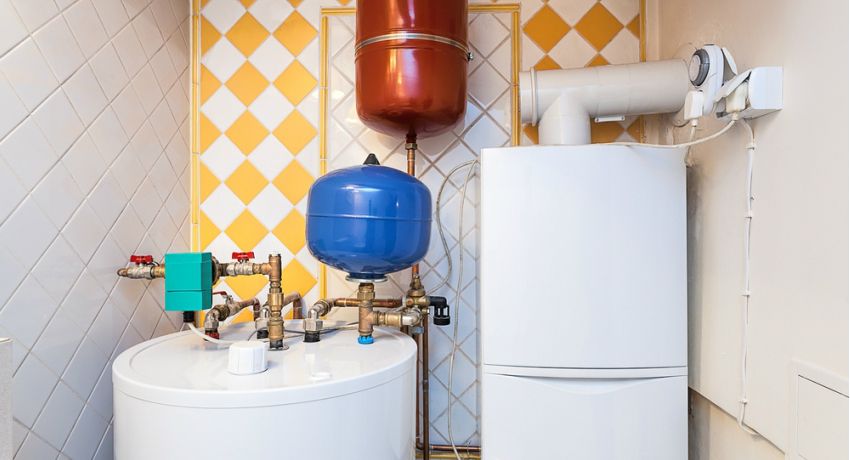
Heat carrier for a country house heating system: what is it?
Coolant in the heating system is a liquid that transfers heat to the radiators from the source, that is, the boiler. Usually, water is used for this purpose, as well as special antifreezes (liquids that can not react even at very low temperatures, and not freeze).
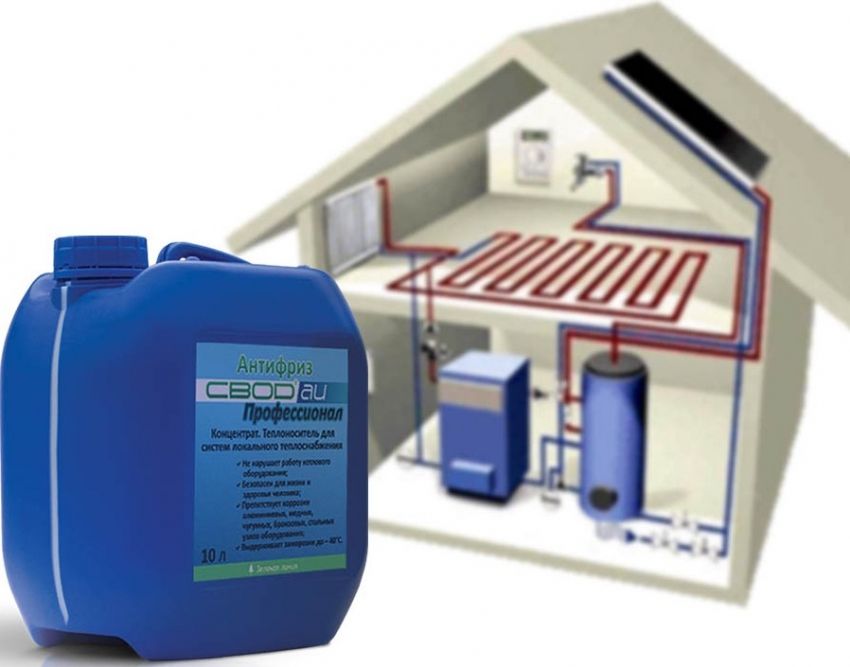
In order to buy a coolant for heating systems, which will be ideally suited to the parameters of your home, you need to pay attention to the following criteria:
- security. In the heating system, like any other, intermittent faults and leaks can occur. Safety of the heat carrier will be of great importance in this case, since the person who fixes the breakdown will have to contact with the liquid. And for the owners of the extra risks to anything;
- it is equally important that the coolant is safe for the heating system, since any of its failure entails substantial financial costs;
- efficiency is another criterion that determines the coolant. Some fluids handle heat transfer better, and some worse. And you need to pay attention to it in the selection process;
- the duration of the operational period may be different, and it is desirable to choose a liquid that will last a long time.
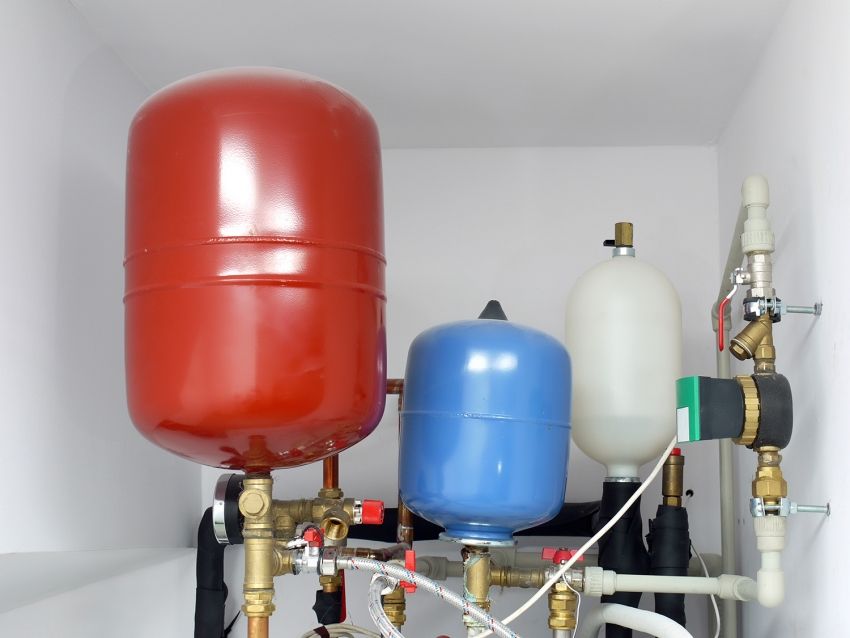
If we talk about what kind of fluid for heating systems is suitable according to these criteria, then undoubtedly, the best option is water. Its heat capacity is quite enough, and it does not pose any threat to pipes or humans. But such a solution has one serious drawback – it is easily exposed to freezing.
Therefore, before pouring water into the heating system, you need to understand that in case of freezing, it will expand and simply break the pipes and radiators. That is why the use of antifreeze for home heating is considered mandatory. Under the influence of low temperatures, the liquid loses some fluidity, but it does not harm the equipment.
So the choice of the coolant must be approached with all the responsibility. The use of ordinary water is allowed, but only if you are able to provide continuous monitoring of the system and monitor its performance. If we are talking about the arrangement of a country house, which is periodically left unattended, and the heating system can be turned off for some time, then adding antifreeze can be considered mandatory. In this case, it is better to buy the heat carrier propylene glycol.
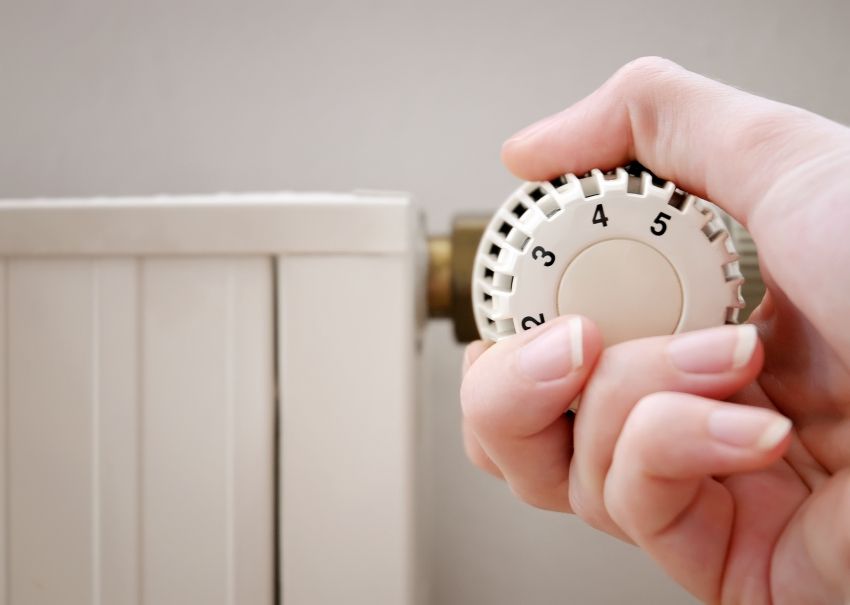
Helpful advice! When deciding how to fill the heating system, you should also pay attention to the risks of power outages. If the house is located in a region where such outages are the norm, then it is also necessary to use special antifreeze.
If we talk about water, as the fluid used to transfer heat from the source to the radiators, then this option can certainly be called ideal. Its heat capacity and fluidity are extremely high, so that heat can be delivered to the radiator in the required quantity without problems.
Many are interested in the question of what kind of water is best poured into the heating system. In this case, the answer is simple – for closed heating systems, ordinary tap water will do. Of course, its composition is hardly ideal, and anyway, it contains salts, as well as a certain amount of mechanical impurities that can settle on the equipment. However, this process will occur only once, and given that ordinary water has been able to circulate regularly through the heating system for years and does not require replacement, there will be only minor damage. Simply put, the amount of precipitation that will appear in the system simply cannot in any way affect its operation.
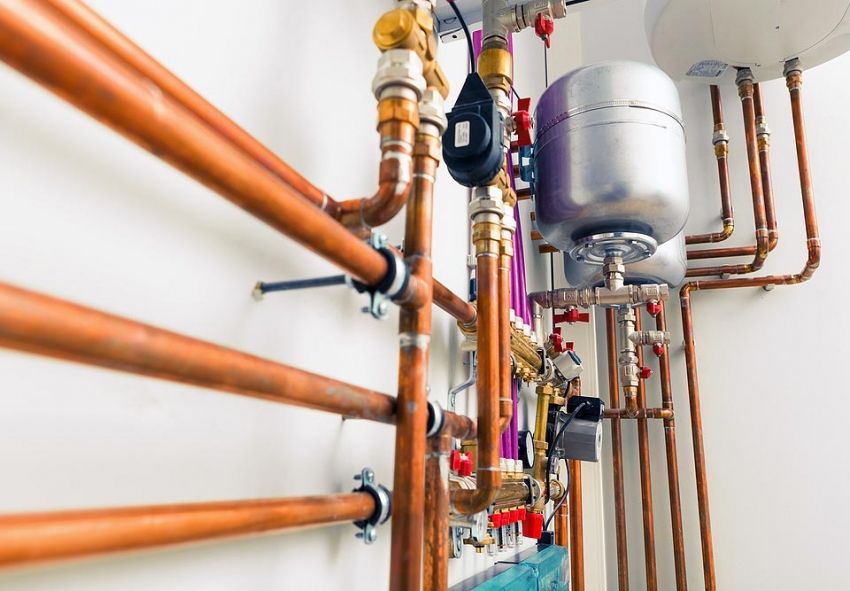
Careful attention should be paid to the choice of water for closed-type systems, since during the operation of the system partial liquid evaporation occurs and water must be periodically refilled. As a result, the concentration of salts and impurities will constantly increase, which, accordingly, will lead to the accumulation of more precipitation on the inner surface of the equipment. Therefore, for systems in which an expansion tank is provided, distilled or purified water must be used.
Of course, to constantly add distilled water to the system is a rather expensive pleasure, and not always it is at hand in the required volume. Therefore, as an alternative, filtered water may be used.
Important! The most negative impact on the heating system have salts of hardness, as well as iron contained in the water. Not useful, and all sorts of mechanical impurities. Therefore, in the cleaning process should pay special attention to this.
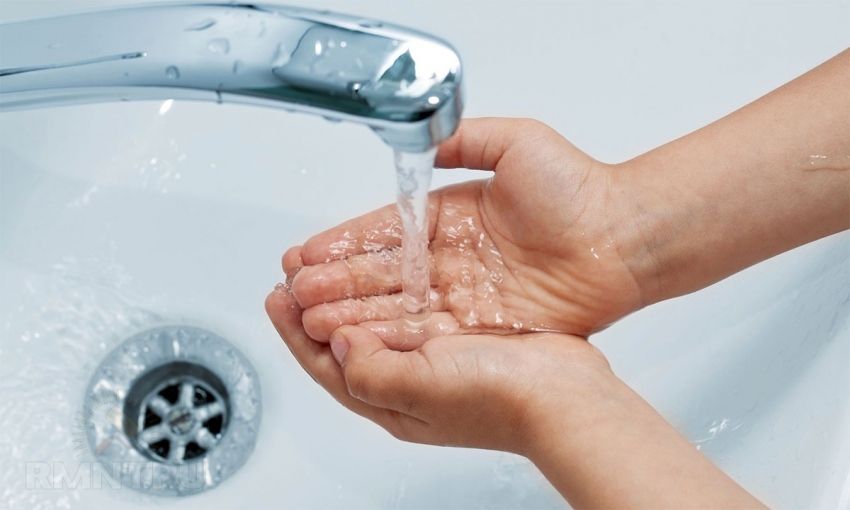
You can prepare water for use yourself. It will take some time, but it will save you from having to spend money on the purchase of distilled water. Here are some simple recommendations:
- First of all, the required amount of water must be collected in a container of a suitable volume and defended. This will allow most of the iron to settle to the bottom;
- after the water has settled, it must be carefully poured into another container and boiled, without covering with a lid. Thus, magnesium and potassium salts are eliminated.
Water prepared with these simple tips can already be considered sufficiently prepared for use. Of course, every time it is rather tedious to carry out such procedures, so you can add already distilled or filtered water, but as an initial fill, this option is great.
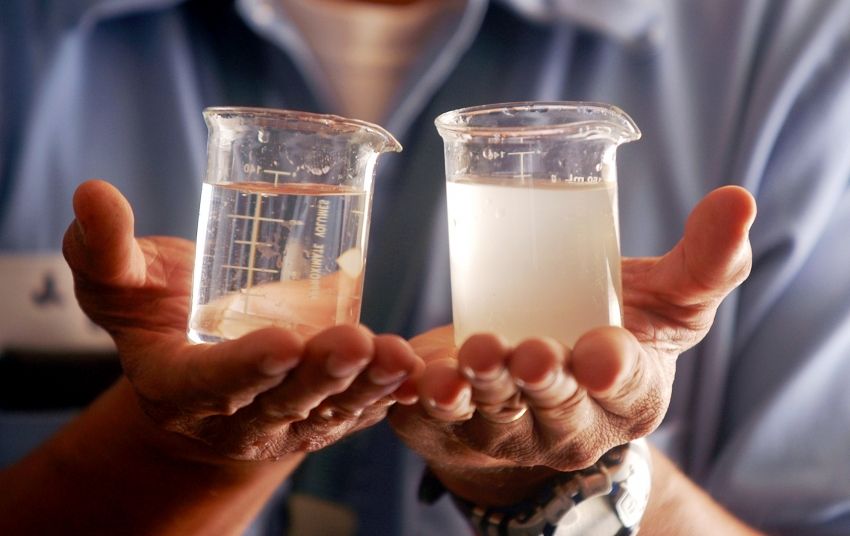
Speaking about the use of antifreeze for heating systems, you need to understand what it is and how to choose antifreeze. These are aqueous solutions of polyatomic alcohols, although not so long ago a new type of antifreeze appeared, as the basis for which glycerin was used. In order to figure out which option is best to make a choice, consider in more detail the characteristics and properties of each of them.
Today, the manufacture of antifreeze is based on the use of two substances: propylene glycol and ethylene glycol. The first option is more expensive, but it is completely safe, even if you use it inside. But it has another serious drawback – it can lose its fluidity at low temperatures, to which ethylene glycol would not react.

Important! Ethylene glycol is extremely toxic and can cause serious poisoning even with its vapors, not to mention direct contact.
Interestingly, despite all the dangers of using ethylene glycol, it is preferred more often, which is most likely due to its lower cost.
Ethylene glycol-based antifreezes are also distinguished by the fact that they are chemically active, have high fluidity and are able to foam. And if it is still possible to fight foaming with the help of special additives, then an increased level of turnover cannot be corrected. And given that the substance is also toxic, it significantly increases the risks of using such antifreeze.
Summarizing, we can say that if there is an opportunity to use heat-transfer agent propylene glycol for the heating system, then it should be used. Therefore, ethylene glycol is sure to leak wherever possible. And its poisonous fumes can cause serious poisoning and further health problems.
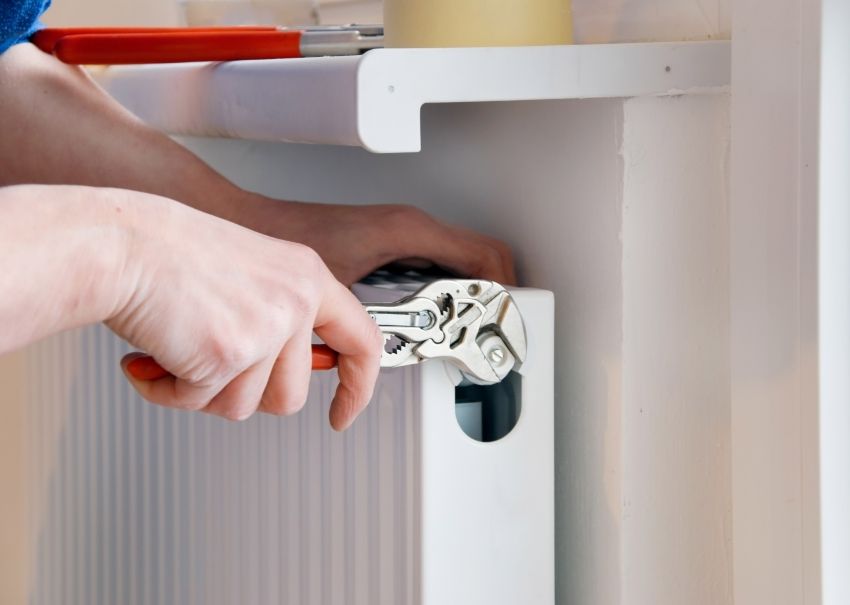
Important! If the heat carrier on the basis of propylene glycol is completely safe, then in the process of working with ethylene glycol, it is necessary to use personal protective equipment: respirator, goggles and clothing that can be thrown away. This is necessary because, upon contact with tissue, the substance remains toxic and cannot be completely eliminated from the surface.
Before you buy a coolant, you need to familiarize yourself with the offers on the market and compare their characteristics. Consider some of the most popular options and their properties.
Popular heat carriers and their properties:
| Title | Active substance | Temperature working / crystallization / decomposition, ° C | Lifetime, years | Can I dilute with water | Price, rub. / 10 kg |
| Heat carrier Dixis 65 | monoethyl glycol | 65-95 / -66 / 111 | ten | Yes | 850 |
| Heat carrier Warm House Eko | propylene glycol | 30-106 / -30 / 170 | five | Yes | 1050 |
| Heat carrier Thermagent Eco 30 | ethylene glycol | 20-90 / 30/170 | ten | not | 650 |
| Heat carrier Teplokom | glycerol | 30-105 / – / – | eight | not | 780 |
| Heat carrier PRIMOCLIMA ANTIFROST | propylene glycol | 30-106 / -30 / 120 | five | Yes | 762 |
Helpful advice! Another extremely popular option is the Warm House 65 coolant. This option can be considered universal, since its characteristics and safety level fully meet all requirements.
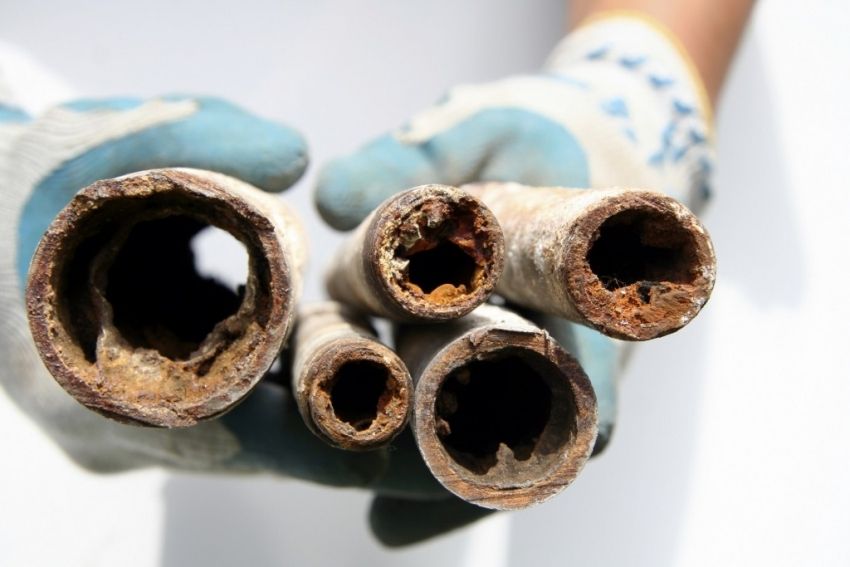
Another important drawback of heat-transfer agents based on ethylene glycol is that they react extremely badly to overheating, which, moreover, occurs at rather low temperatures. That is, already at + 70 ° С a huge amount of sediment appears, which immediately settles on the surface of the heating devices. Such deposits adversely affect the heat transfer, which again leads to overheating. It is for this reason that antifreeze is never used for solid fuel boilers.
Important! Ethylene glycol based coolant can have a destructive effect on pipes, especially if they are galvanized. Therefore, acquiring such a substance should think about the safety of the elements of the system.
As for propylene glycol, its chemical composition is completely neutral, and therefore the heat carriers made on its basis react little with other substances. Overheating occurs under the influence of significantly higher temperatures, and its effects are not so unpleasant.
At the same time, the temperature schedule of the coolant, the limits of which are defined as 30-90 ° C, should not be violated, as this may lead to the fact that the paint and varnish coatings of the equipment will decompose. Yes, and sanitary norms prohibit the excess of these indicators.
Thus, choosing a coolant for electrode boilers of heating and other systems must take into account many factors. Of course, the price is an important criterion, and for many it is the one that is decisive, but do not forget about security. If there is an opportunity, it is better not to save, and give preference to the best coolants, which are also characterized by high efficiency.

